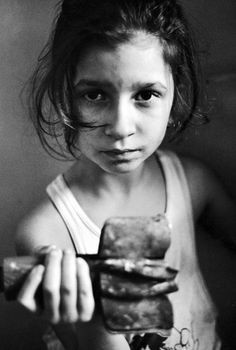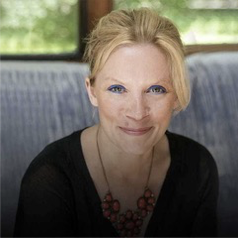 Recently, a friend sent me a text asking if I have any advice for how to navigate this virus that has taken hold of the world. She wrote, “I know you’ve been to places in the world that have gone through terrible tragedies and got to the other side. I’m not sure what do to. How did they do it?”
Recently, a friend sent me a text asking if I have any advice for how to navigate this virus that has taken hold of the world. She wrote, “I know you’ve been to places in the world that have gone through terrible tragedies and got to the other side. I’m not sure what do to. How did they do it?”
When I got this text, I thought about the people I’ve met and worked with over the past few decades. I’ve been trained, taught, mentored, and advised by people who have survived wars, genocide, torture, and brutality. They were, in their own words, regular people living regular lives, and then one day everything changed. They were asked to step into a reality not of their own making, and somehow navigate and survive it. Many of the women I’ve worked with didn’t survive. They still navigated brilliantly, with a grace and leadership that if followed can rebuild nations. Those who survived became my teachers. Through their actions, they showed me what it means to lead, on the ground, in their community, without recognition or fanfare. They, in their own words, merely did what they had to do.
During this past month, I’ve thought most about the women of Bosnia. I remembered what I heard from them during my time volunteering. Much of it reminded me of what communities and countries are now facing in this pandemic.
The women of Bosnia had to figure out how to keep their families and communities going when thousands were dying around them every day. They had no idea when the siege would end. They didn’t understand why the world’s leaders weren’t acting sooner or faster. They needed financial support to keep going, but weren’t sure where it would come from or if it would arrive. They were scared for their neighbors and for orphaned children, and they were scared for their own lives and their families’ lives. They were exhausted. They were traumatized. They wanted to go back to life as they knew it, and yet they knew nothing would ever be the same again.
On top of this, their daily lives were filled with gunfire, dodging landmines, and running to the store - physically running - to avoid the shots that came from the hills above Sarajevo.
Somehow they endured. They made it through the siege. And while it took years to do so, they rebuilt their community and their country. It was women who carried their communities through the siege and led the efforts to rebuild their country, one life and one brick at a time. How did they do it, and what can we learn from how they came out the other side?
Here are the five lessons I learned from the women of Bosnia, which I hope can be helpful to women around the world as we grapple with this pandemic, support those most deeply affected, and begin to imagine and re-imagine a world where wars and pandemics aren’t the blueprint of our future but the faint whisper of our past.
Lesson #1: Laser focus on your shared goal. Their shared goal: Keep as many women and children as safe and cared for as possible during the siege, and when it was over, figure out how to rebuild a country. They welcomed any woman who wanted to join this effort. All women who showed up at the doors of the Women’s Association of Bosnia Herzegovina were welcomed, embraced, and immediately trained and supported in how she could contribute. The rooms were filled with women from all walks of life; practicing doctors, lawyers, pianists, teachers, artists, business owners, waitresses, mothers, chambermaids, and college students. They said hello, shared their commitment to helping women and children no matter what, and then they got to work.
In the United States we have reasons to be divisive. And as the pandemic spreads and our emotional and psychological reserves drain, we may not feel as connected to one another as we do in these early days. What the women of Bosnia taught me is that this is not a foregone conclusion. I learned that people didn’t want these women of different ethnicities to stay this connected and focused, because it disrupted the narrative about why the siege was happening. They didn’t acquiesce to this. When they grew tired, they rested. When they were weary, they talked about it. They got through it together not in the short term, but over the long-haul.
Lesson #2: Act swiftly. There’s no time to waste. Each morning, the women of this association would gather around long oblong tables, drinking endless cups of Turkish coffee and chain smoking, but rarely eating. Sitting in their donated chairs, these women organized. They listed the priorities.
They triaged. They fought, yelled, cried, disagreed, and then they agreed. They’d write their plans, strategies decrees, and letters to the United Nations on 11 x 14 inch sheets of paper. They’d leave the office en masse, handing me the sheets of paper to proof and edit. I’d stay in the office at night, reading, copy editing, correcting, and typing up the letters and plans on a fairly modern typewriter, readying these documents to share with women in communities throughout the country and for leaders throughout the world. They’d show up again the next day, take their seats, and talk through how to execute on each idea on the paper. We will win this. We will, they would say. And then they’d get to work.
In many of our institutions we’ve had the luxury to deliberate, sometimes for a bit too long. These women leaders taught me about how to respond quickly and swiftly. It wasn’t free of mistakes, and nor will our COVID response be either. But we can learn from the actions that didn’t work, course correct, and take the best, next, right action.
Lesson #3: Remember that we each carry invisible wounds. I remember a woman who told me her story. She spoke to me. My translator spoke into my ear. She said that she had a good life. She had a beautiful home, a husband and a daughter that she loved. They traveled. They had beautiful things in their home. And then the day came when she knew they were under siege. And suddenly everything was gone. Her husband was killed. She was forced into a rape-genocide camp. She told me what happened in that camp, and how she was eventually “set free”.
She said that in the camp she remembered hearing of the terrible things happening to women throughout the world. She would say, I’m sorry for them but what can I do. That day, she told me she thought that what she had endured was punishment for closing her eyes to what women had gone through before her. I froze when she said this. How could she think this was punishment? How could she blame herself for what happened to her, for what had been happening to women around the world? She said, now I am a part of the group that I wanted to pretend didn’t exist.
Years later I would learn about trauma and PTSD. I might have heard those words when I was younger, but I didn’t understand. What I learned from this woman was that we are each of us carrying pain. It is often not visible, and usually covered up under achievement, success, or a good life, but it is still there. So be gentle with yourself. Be gentle with the people you connect with in the coming days and weeks. We are going through something together, and we are each carrying something with us that has us trying to find our place in this world.
Lesson #4: Perfect won’t happen. The woman who was the leader of Women’s Association of Bosnia and Herzegovina once broke up a heated discussion between two women by saying, “Perfect won’t happen. Try another approach.” And faster than I’ve ever seen a shift in thinking, these women pivoted. What I saw in each of these women was a concept I hadn’t known about until I met them: adaptive leadership. They didn’t adapt over time. They adapted in the moment. If something wasn’t working, they pivoted. The circumstances around them weren’t static. They were ever- changing. They shifted and adapted to the new circumstances, then addressed them head on.
As we tackle COVID-19, we should aim for inclusion, reach, impact, and results, but not perfection. Perfection is a punishing goal that will ultimately lead to running around in circles vs. solving the challenges at hand.
Lesson #5: Joy is a requirement. After and sometimes during the hardest organizing sessions, I would hear women who had just been yelling break out into the most booming laughs I had ever heard. They laughed, danced, and played music. They talked about their first loves, their wedding days, the birth of their children. I knew may of these women’s husbands and sons had been killed. But in these moments they did not mention this. They reveled in their memories. They soaked up the joy of each other’s stories.
They went to poetry readings together. They talked about what foods they would have when food wasn’t donated. They imagined weekends at Croatian beaches. They imagined. They felt joy. In this, they showed me what it means to survive when you’re not sure if you’ll be here tomorrow. They embodied the future they imagined was possible, and I think in doing this, they slowly and beautifully created it.
You are not betraying anyone if you experience joy. You are experiencing your own humanness, and creating a pathway to the future we are all working to unleash.
Follow Kathy LeMay on Twitter

At the age of 23, Kathy LeMay traveled to the Balkans during the siege on Bosnia. During that time, she met and learned from women who had survived the rape-genocide camps and who would work tirelessly throughout the war to provide for the country’s women and children. Kathy returned to the states, shared their stories, and in the mid-1990s helped to raise a quarter million dollars for food, medical care, and trauma counseling. Most of this was raised $25 at a time. Kathy learned the power of regular people to transform lives and design a better future for all.
Since then, Kathy has traveled the United States and the world listening to, learning from, and raising money for those who’ve survived war, genocide, gender-based violence, and climate-induced disasters. In the course of her work, she has raised a bunch of money, led international women’s human rights organizations, become a sought-after public speaker, published a book on generosity, served as a philanthropic advisor, and in the process made a whole host of mistakes and missteps. From these she learned that being in the halls of power were not meant for her. She had arrived and never felt so lost.
Now, after nearly thirty years working in global social change, Kathy is going back to her roots, reconnecting with community-based social change and rediscovering what it means to make a difference no matter your social status or the size of your bank account.
When she’s not trying to figure out how to be better at being a human, Kathy collects cats, raises alpacas, and decides if she’s going to go for a run.